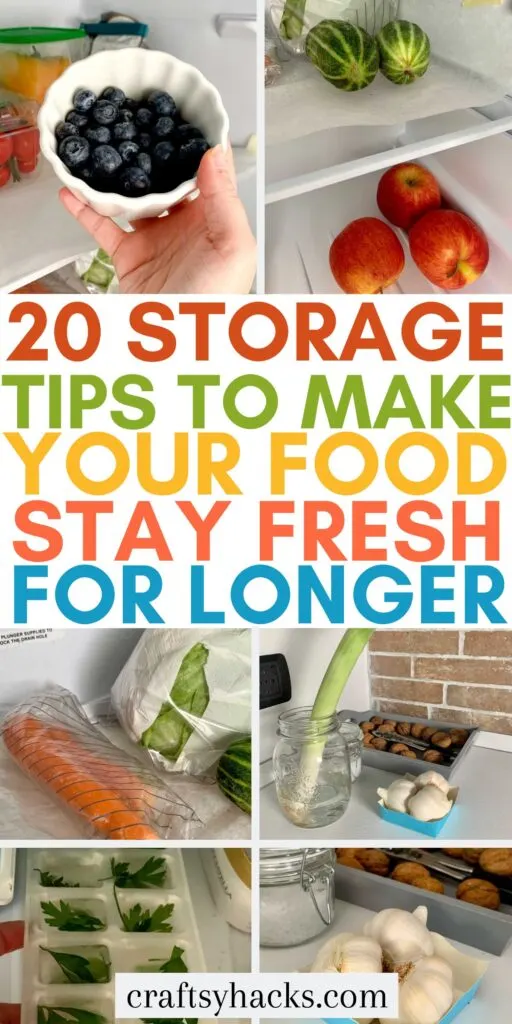If you’re anything like me, you’re always looking for tips and tricks to keep groceries fresher for longer. Lucky for you, we’ve gathered these best ways to store food.
My hacks here include fruits, vegetables, dairy, and some grains. It is one of my favorite subjects to learn more about any chance I get.
I’ve even talked to my grocers about some tips and tricks, which I mention further down in the post.
As always, I hope you find some tricks that interest you and you try some of them out. Share your favorite hacks and any that you use regularly!
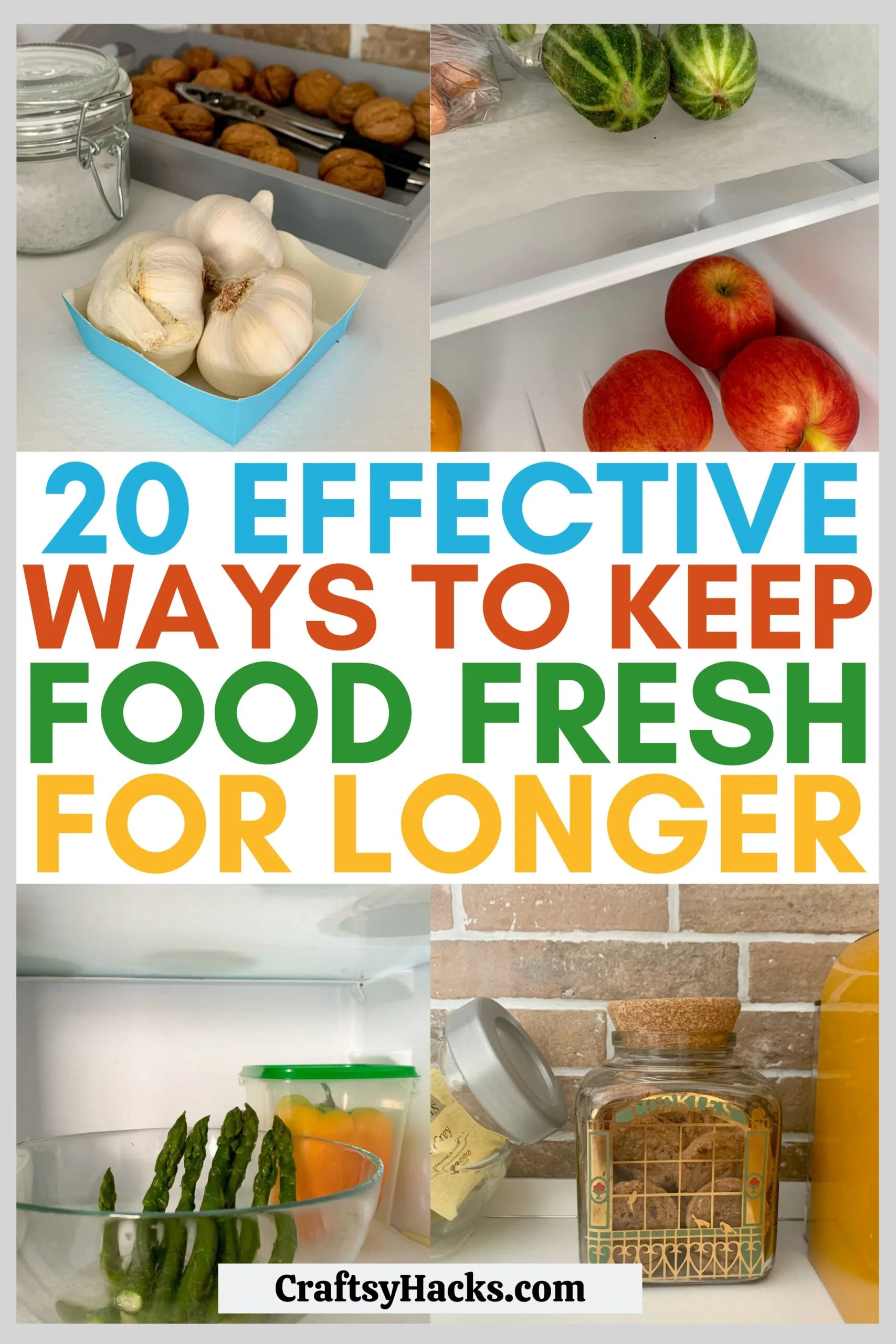
Watch: 20 Genius Food Storage Hacks!
1. Prevent Bananas from Ripening
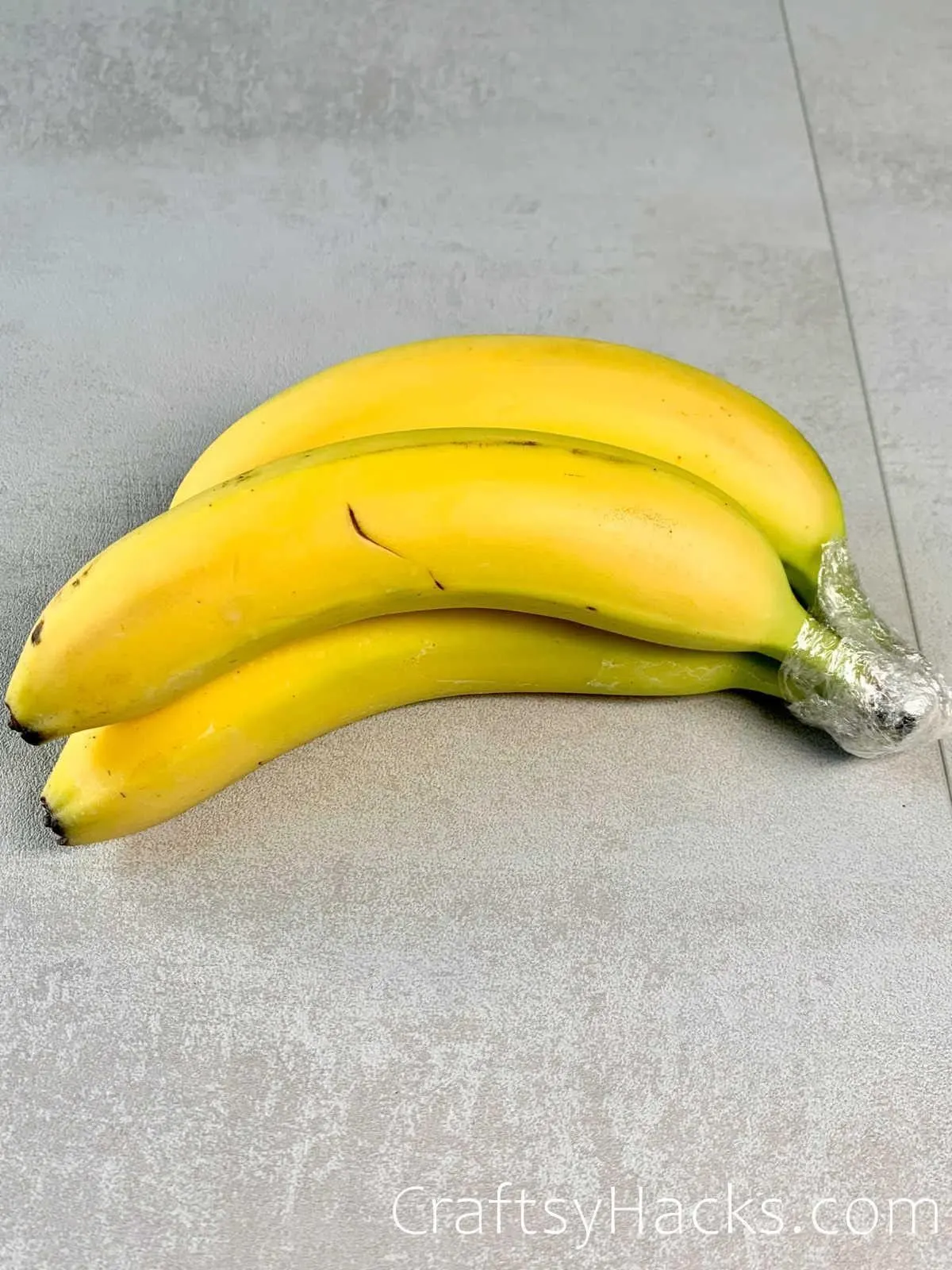
A great way to elongate your banana’s life is to take a piece of saran wrap and cover the area where the stems meet.
Wrapping the top up helps prevent a natural ripening process, letting your bananas stay yellow longer.
2. Use a Vinegar Solution for Berries
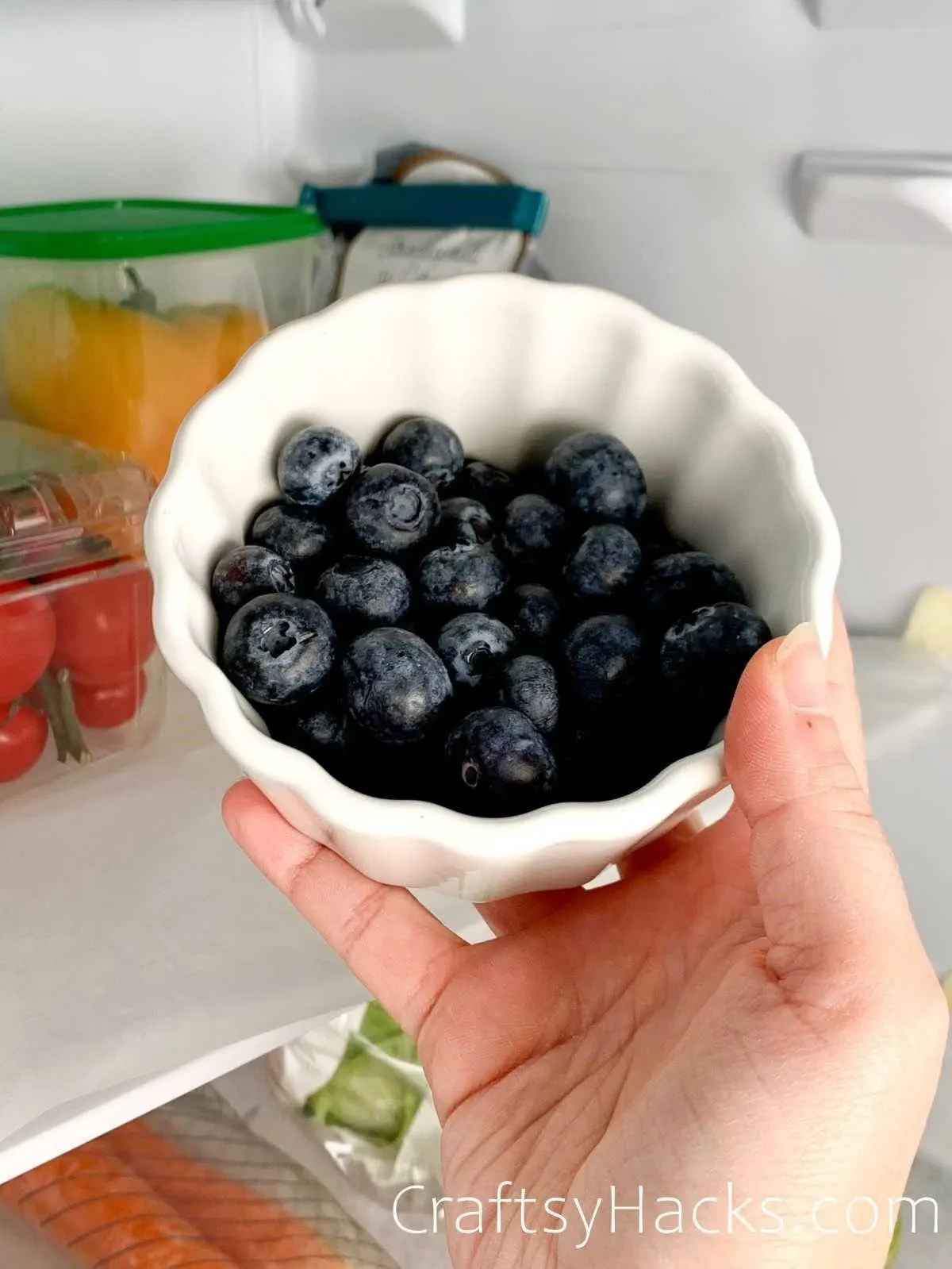
Pull out your white vinegar as you’re prepping blueberries, strawberries, raspberries, etc. Combine a one to three part vinegar water solution to have your berries sit in to help pull out any dirt or grime.
Vinegar helps sanitize and stabilize any infection that may be lurking in your fruit. Let sit for a bit, and when prepared to clean them, dump the solution and rinse until there’s no scent of vinegar left.
Pat dry and store them in the fridge.
3. Keep Bell Peppers in an Airtight Container
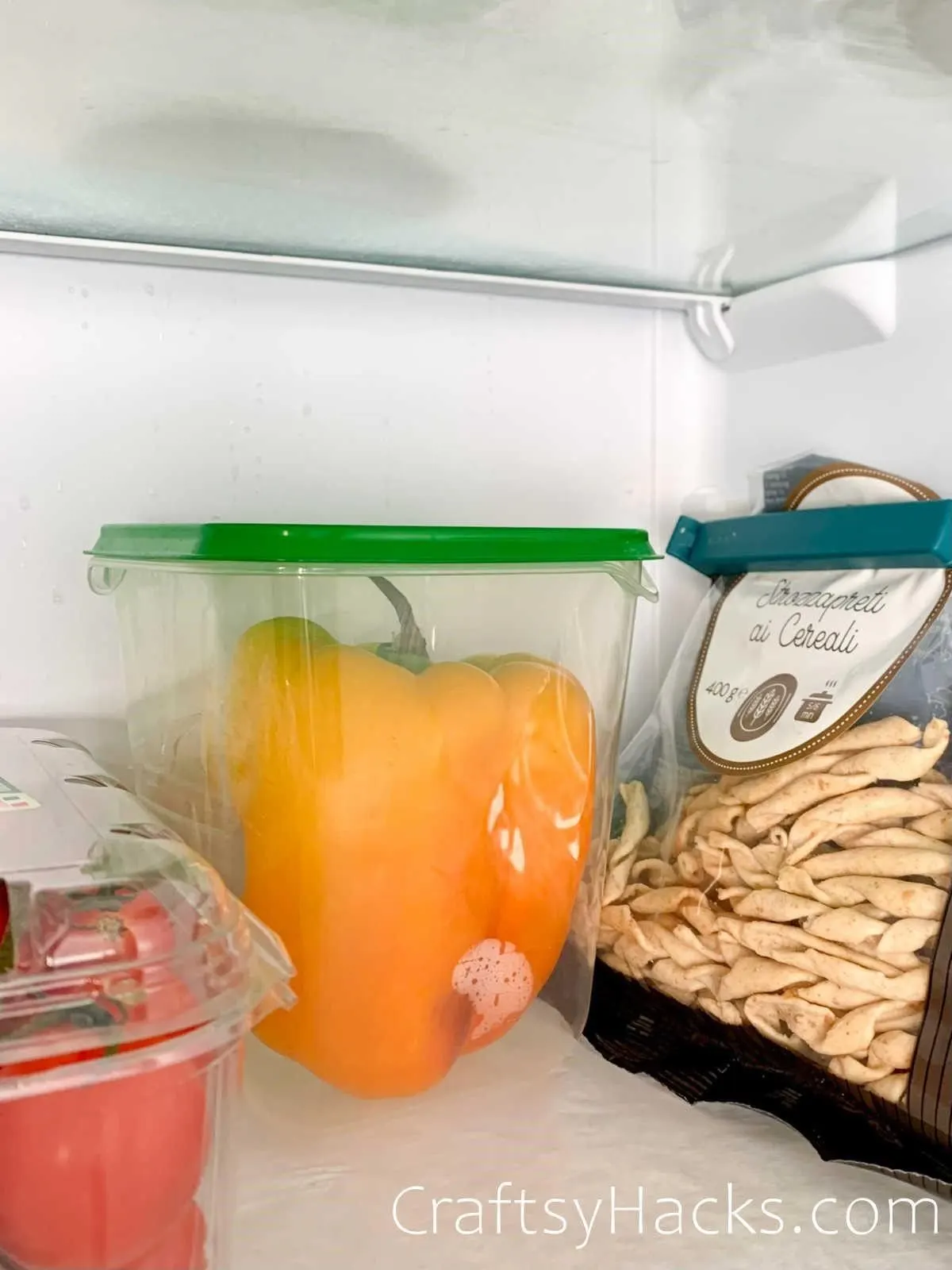
Peppers are one of the easiest vegetables to keep longer in your fridge. Simply place a whole pepper into an airtight container to retain its crispness and freshness.
Be aware of any dampness that may start to form in the container, and wipe it away as needed.
Make room in your fridge with these brilliant fridge organization hacks!
4. Store Herbs in Covered Jars with Water
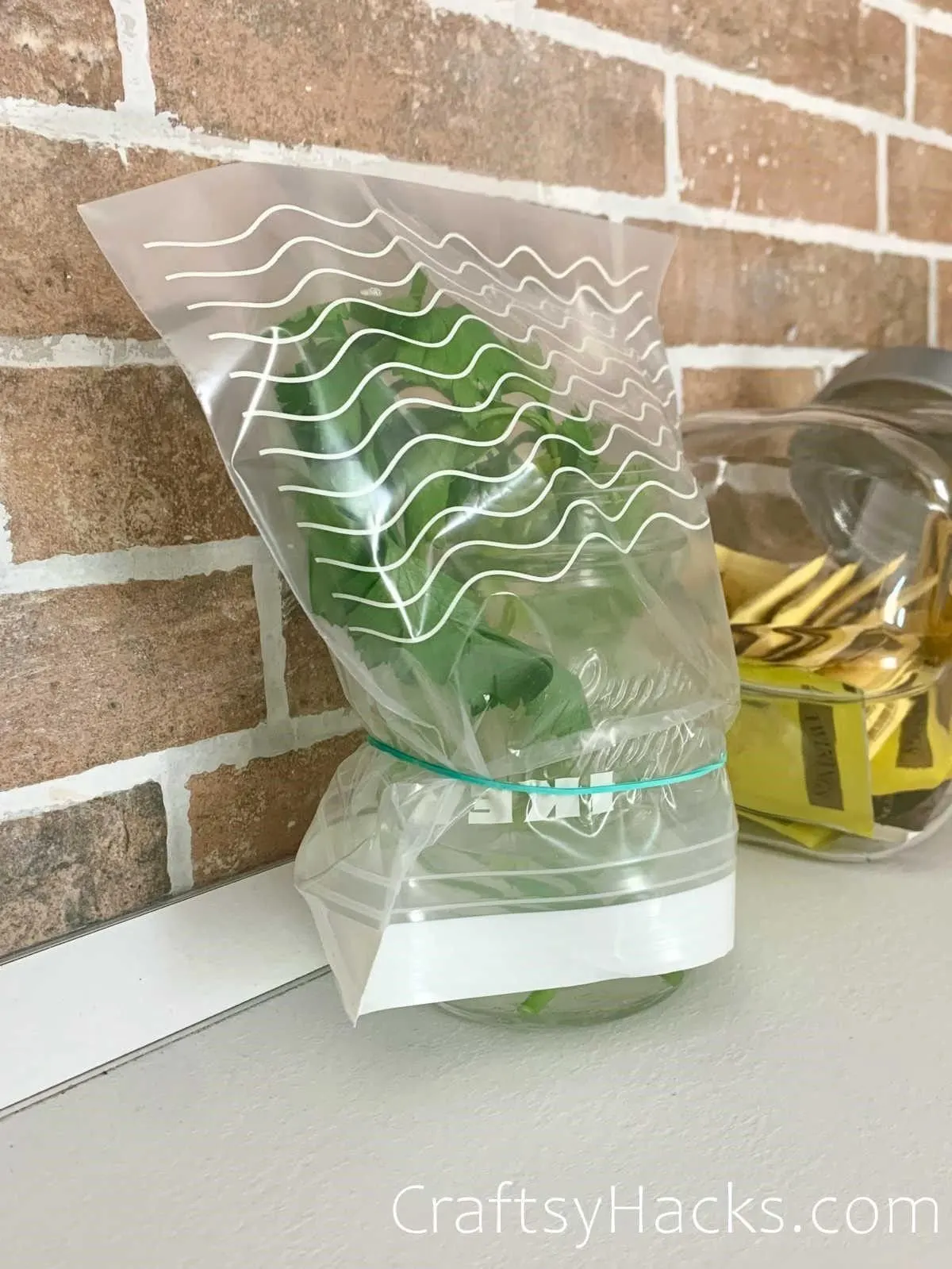
If you have stemmed herbs that you aren’t using right away, get them into a jar of water and rubberband a bag overtop of it.
These types of herbs are kind of like flowers in the sense they’ve gotten plucked from the plant but can live a little longer given warmth and water.
Continue to take note of how the water levels are doing amongst your herbs and swap old for new water as needed.
You don’t need to add too much water to these jars, either. Just as much to cover the roots well will get the job done.
5. Wrap Lettuce in a Paper Towel
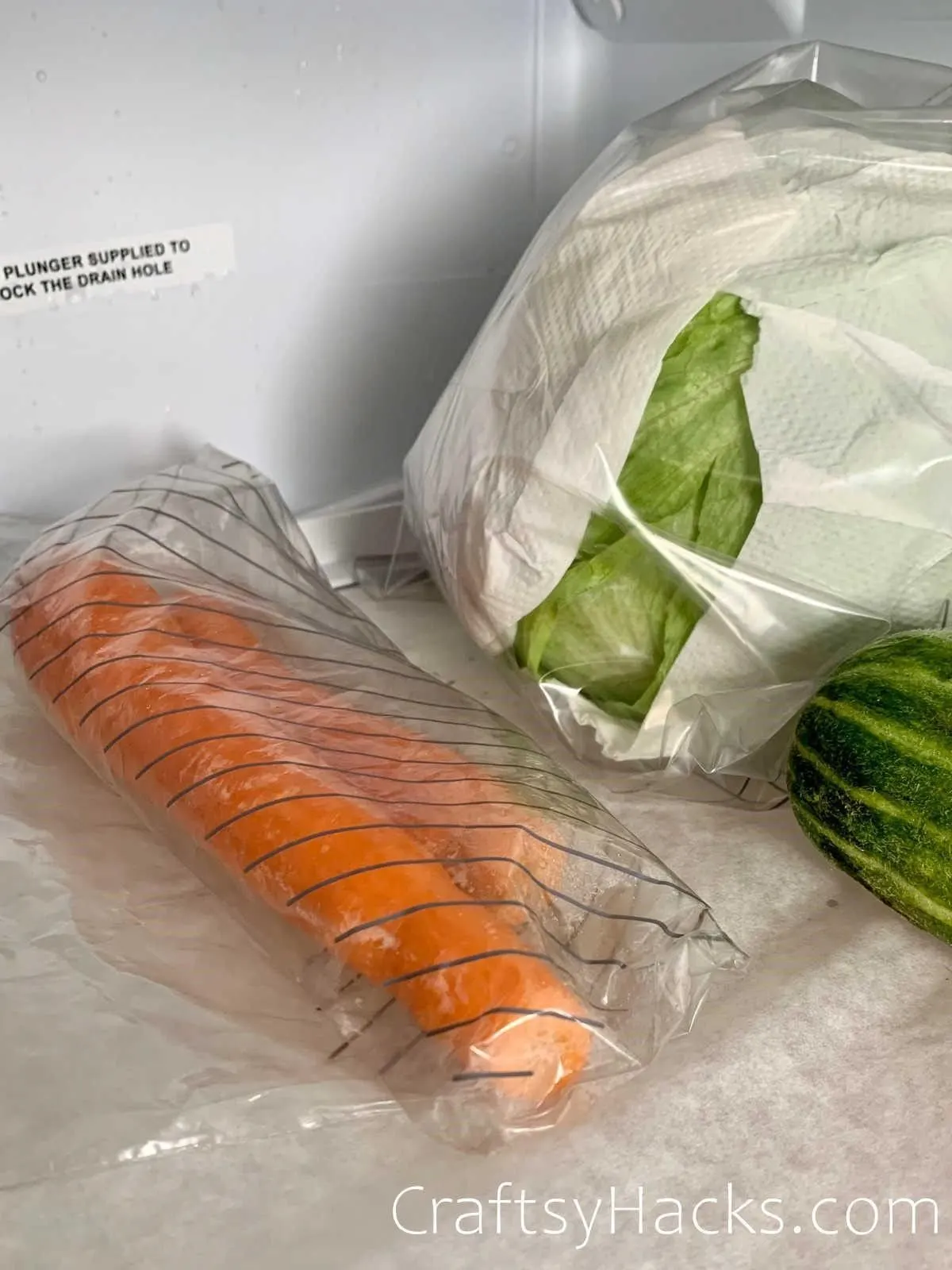
Paper towels are a secret weapon of the preservation game! It’s the best and my favorite way to elongate greens.
Dab your lettuce dry after an initial rinse, then wrap it in a second cloth and store it in a plastic bag like this one in the fridge.
6. Keep Ginger in the Freezer
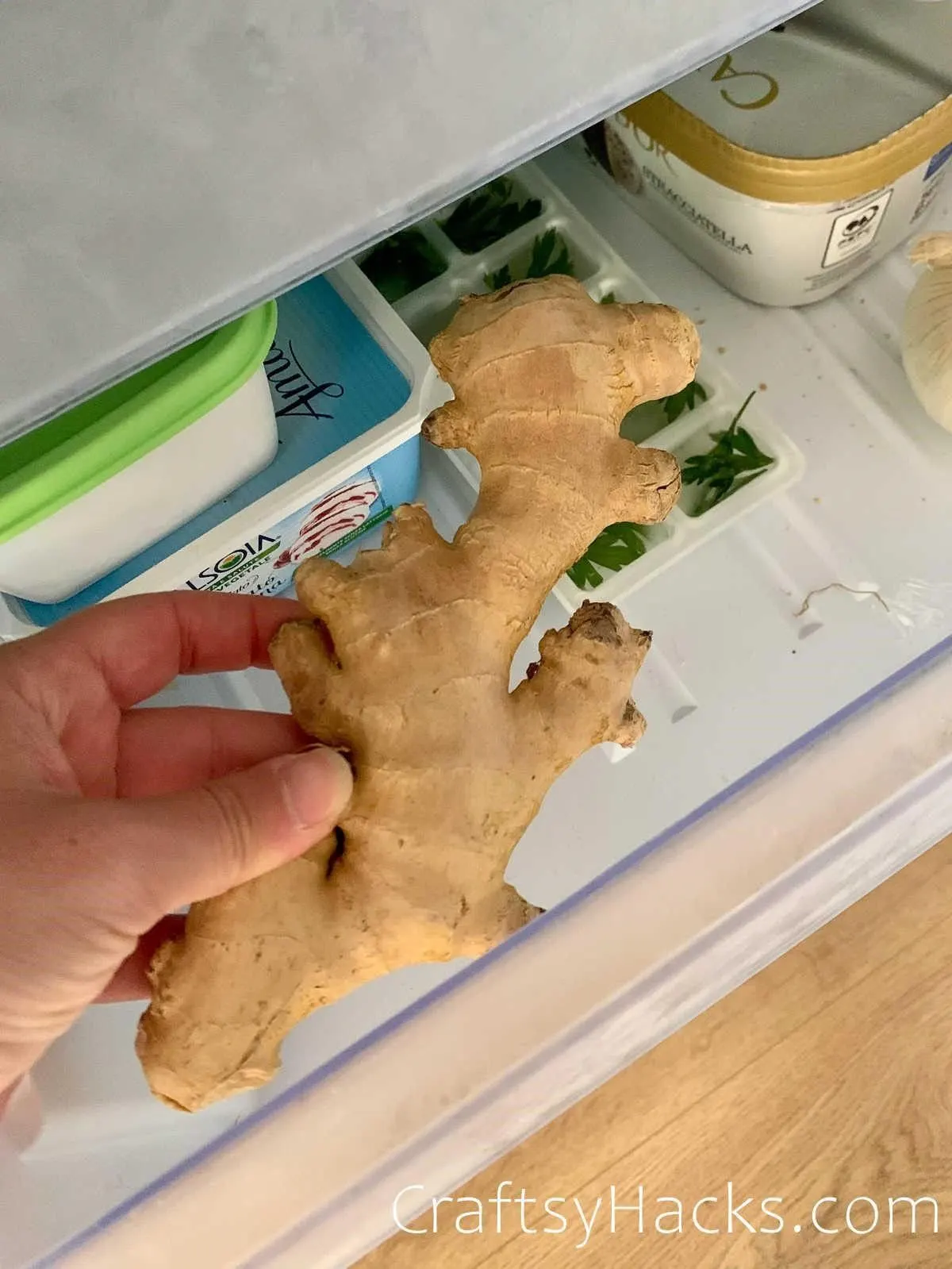
The absolute easiest hack today–is to put your entire knob of ginger into the freezer. No prep is necessary unless you prefer to prep your ginger in a specific way.
It’s possible to cut ginger while frozen and grate it too!
7. Pat Dry the Vegetables After Washing
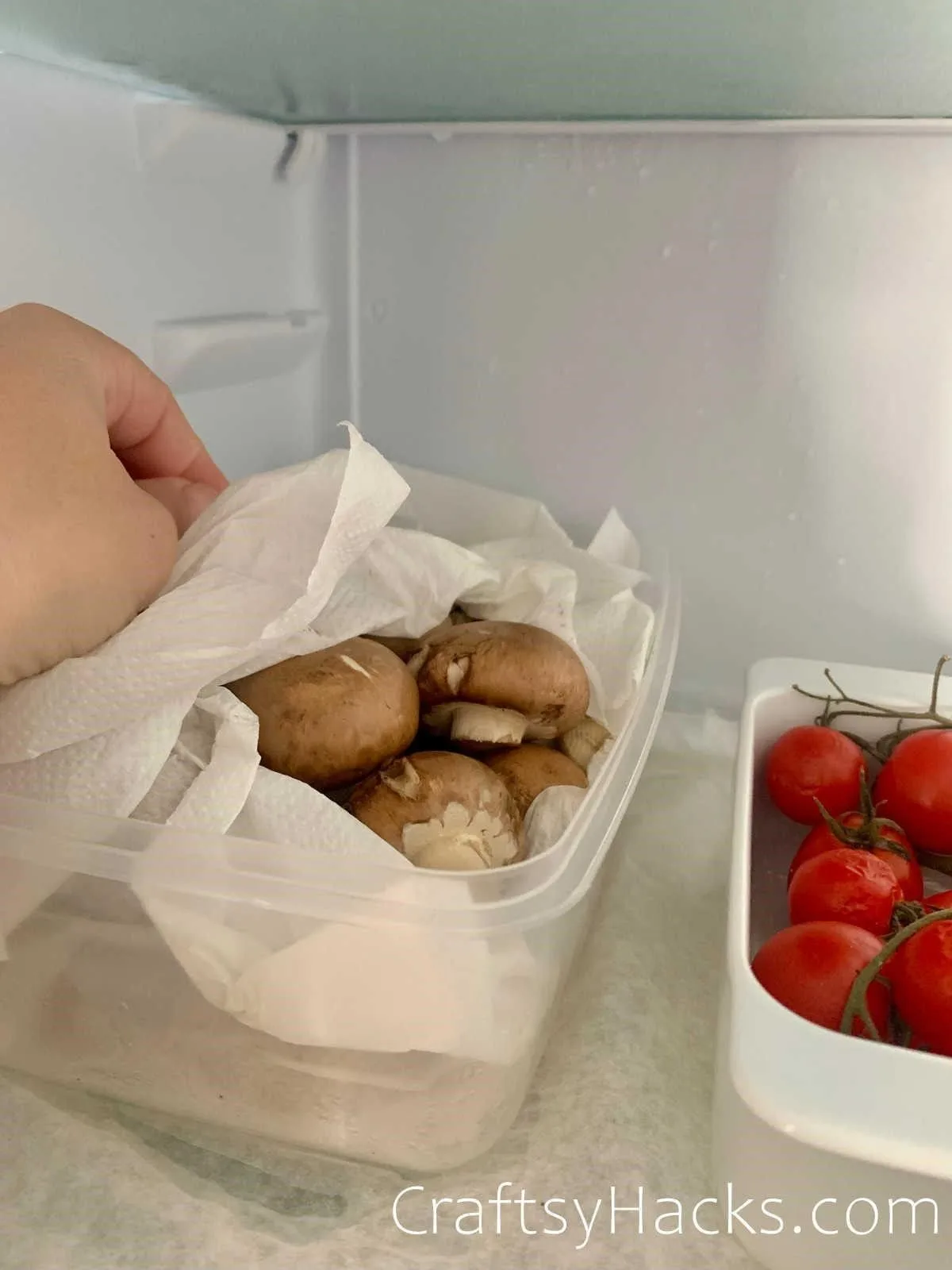
I’ve learned the hard way that moisture can lead to mold or other complications inside and outside the kitchen, so it’s no different when it comes to your produce.
Patting everything dry ensures no chance of early deterioration in any ingredient you just bought.
8. Store Leeks in Jars
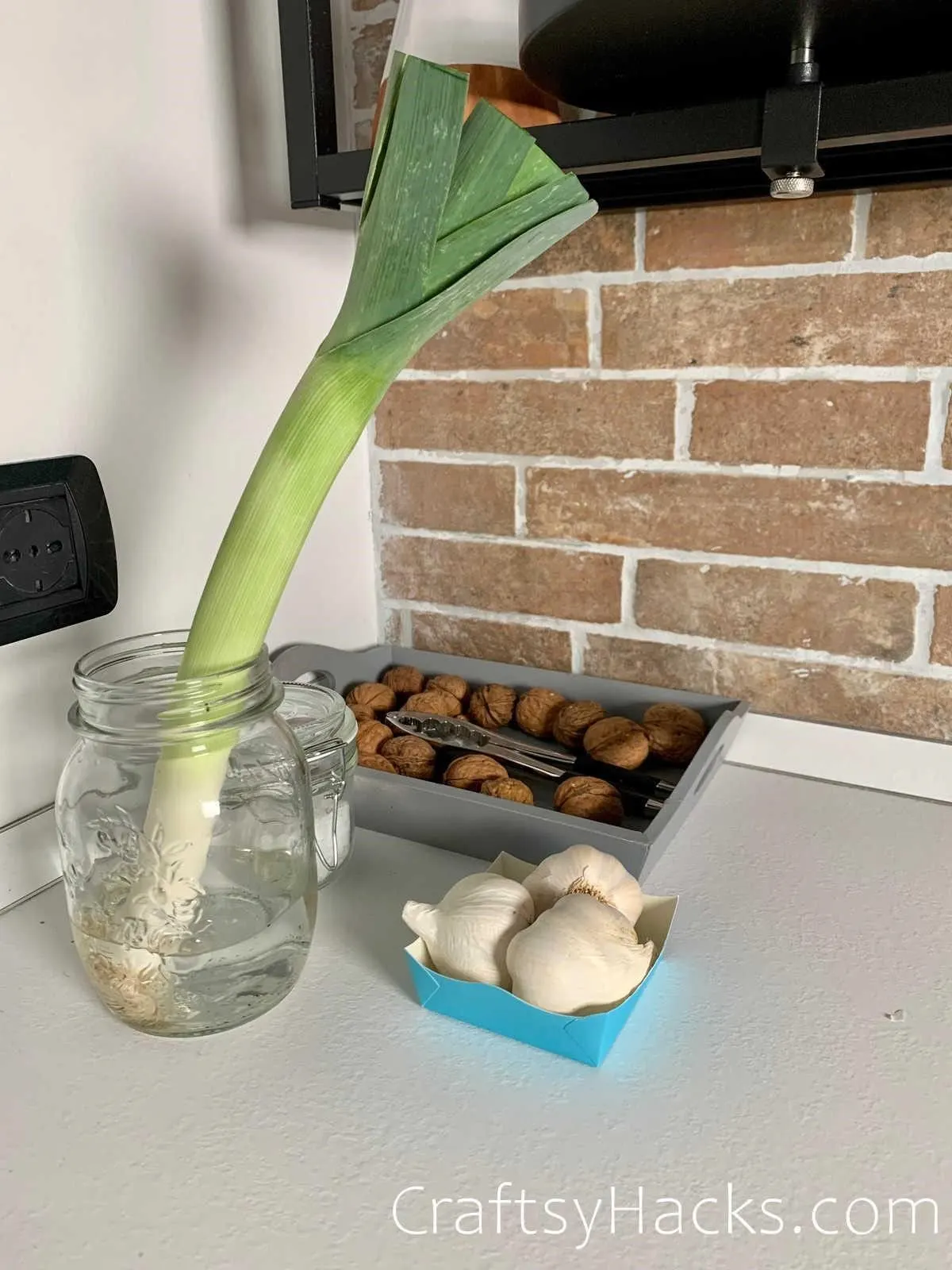
Very similar to herbs, leeks can continue to live for longer and even grow if placed in water.
After giving them a good rinse, add them to a jar of water that fully covers their roots–change the water as needed.
9. Freeze Chopped Herbs
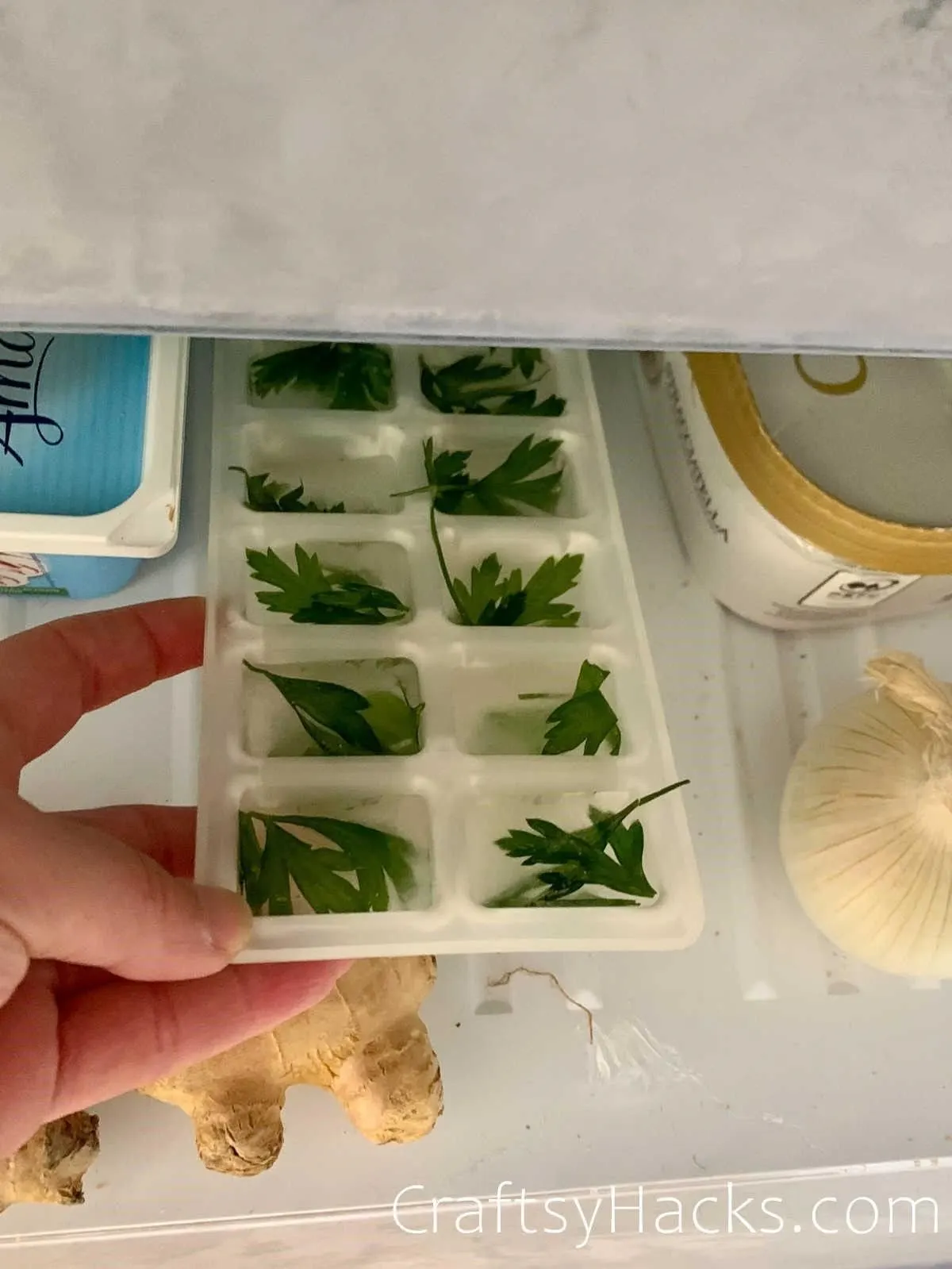
If you don’t like the idea of having jars around your kitchen filled with herbs, prepare them so you can freeze them with a liquid.
If you’ve checked out the video on my YouTube page that I used water, feel free to use a fat if you plan on cooking with some!
I’d recommend the jars if you want fresh herbs and frozen if you’re okay with thawed or cooked versions of your picks.
10. Wrap Radicchio in Foil
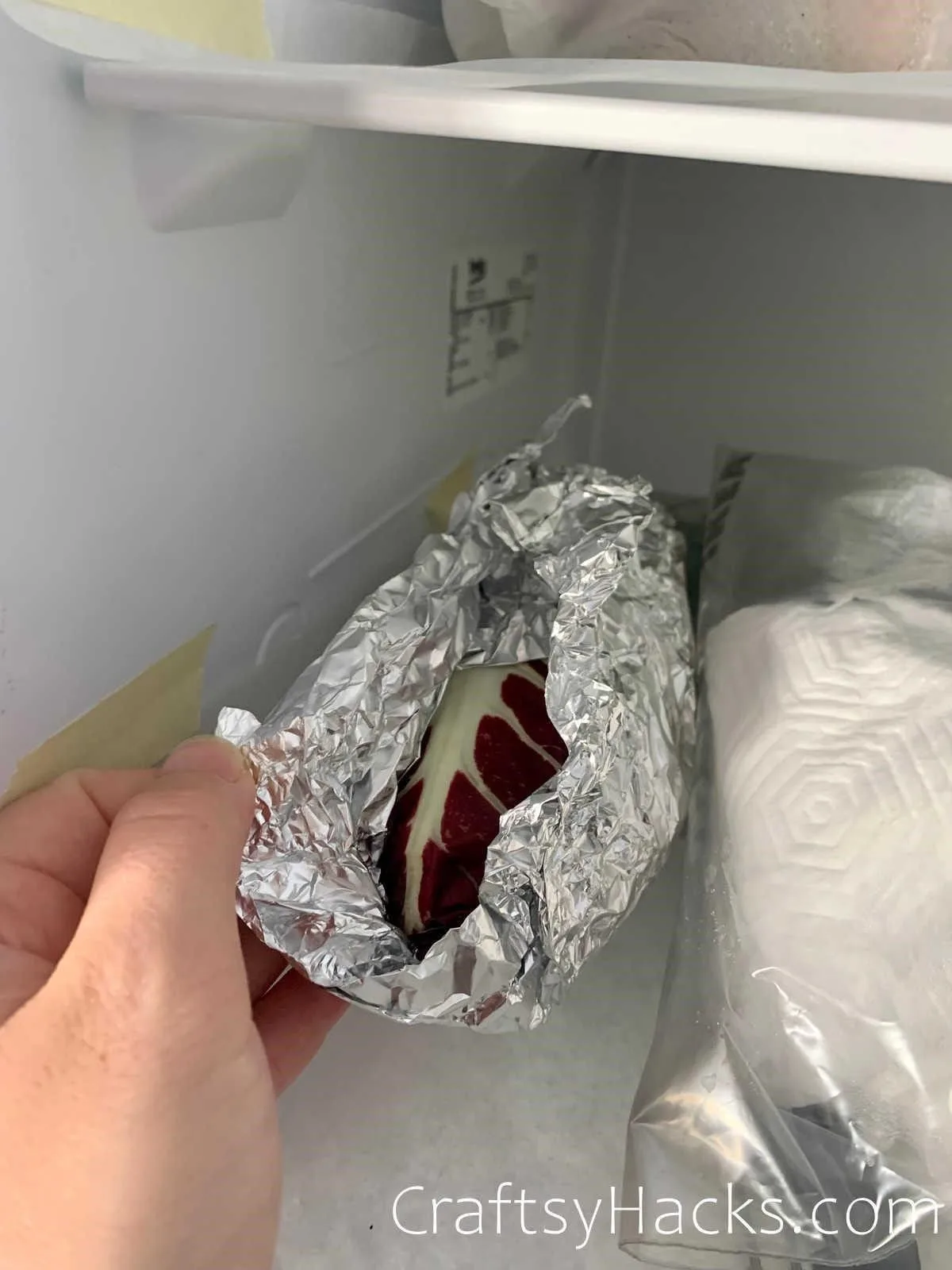
Tin foil will help radicchio stay crisp and help retain moisture, thus elongating its shelf life. Wash as needed, dry off, and wrap up in a sheet of aluminium.
11. Keep Tomatoes in the Fridge
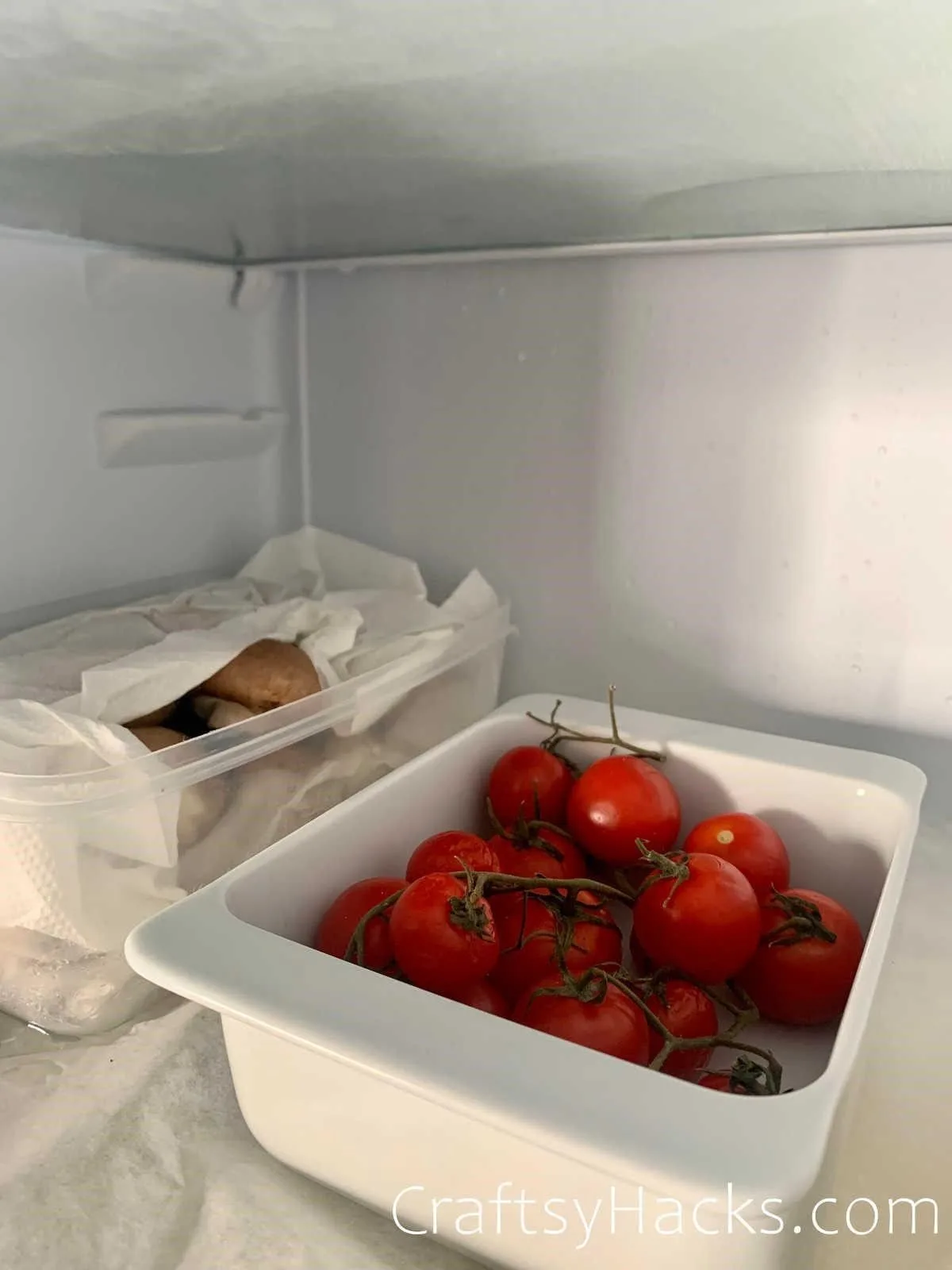
Most of us learned that tomatoes are okay to sit outside the fridge and are completely okay to do so. I like throwing my tomatoes in the refrigerator on a few occasions.
One, if I have a bunch of them and won’t use them all in one recipe. Two, if it seems like the tomato I’ve chosen at the store is already ripe, I’m not using it the same night.
There are more reasons why you may need the trick in the future, but those are a few of my top scenarios.
I love this little bin from the pack I picked up over the summer–the perfect size for more petite tomatoes.
Make sure to store away from avocados, apples, and bananas–all are known to ripen around tomatoes.
12. Freeze Shredded Cheese in Freezer Bags
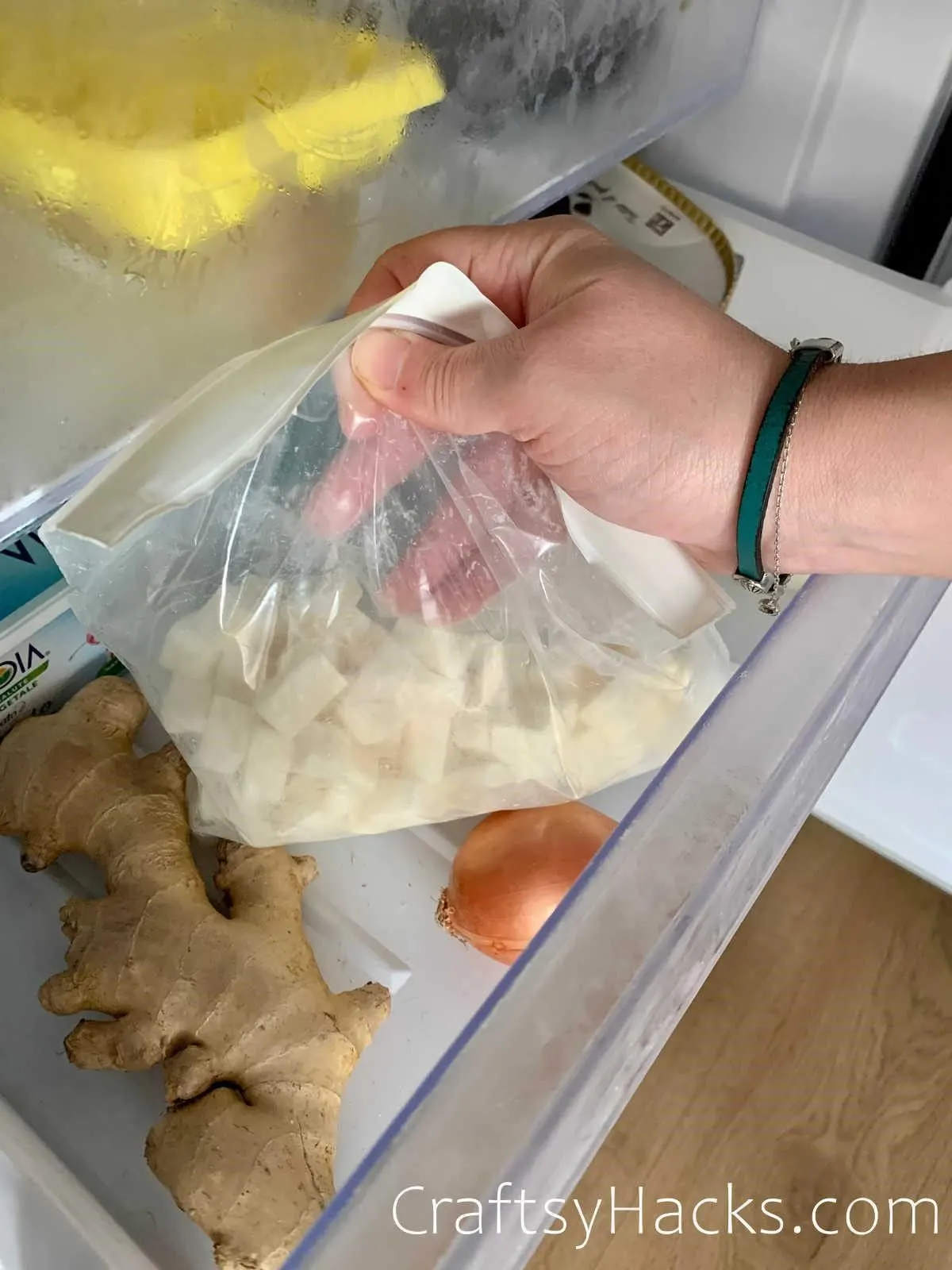
One of our favorite ways to snack on cheese!
We buy a big hunk of something from the store, cut it all up, toss it with cornstarch (it helps to keep the cheese from freezing to each other), and throw it in the freezer.
Pull pieces out a bit before snack time, warm them up very briefly in a microwave or place them on top of a preheated stove.
Get more use out of your freezer bags with these brilliant freezer storage hacks.
13. Keep Mushrooms from Getting Slimy
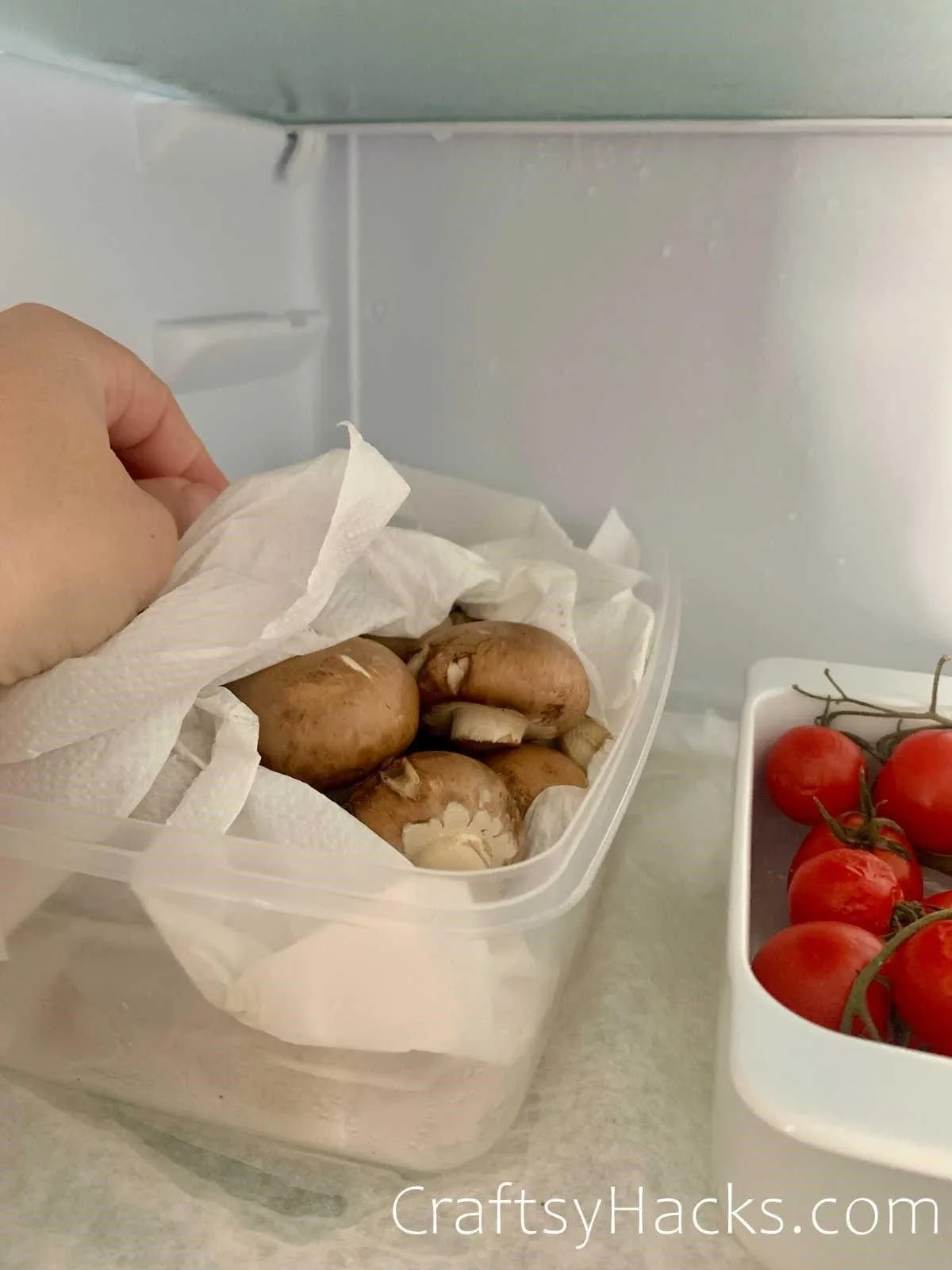
Mushrooms can become one of the slimiest, ickiest offenders in the fridge the fastest, the best way to combat it is the following hack.
Rinse them off, dry them with a towel, put them onto a second towel, and place the towel and mushrooms into a container.
You’ll want enough of a towel tail on either side to cover the fungi fully.
14. Keep Your Carrots in Airtight Bags
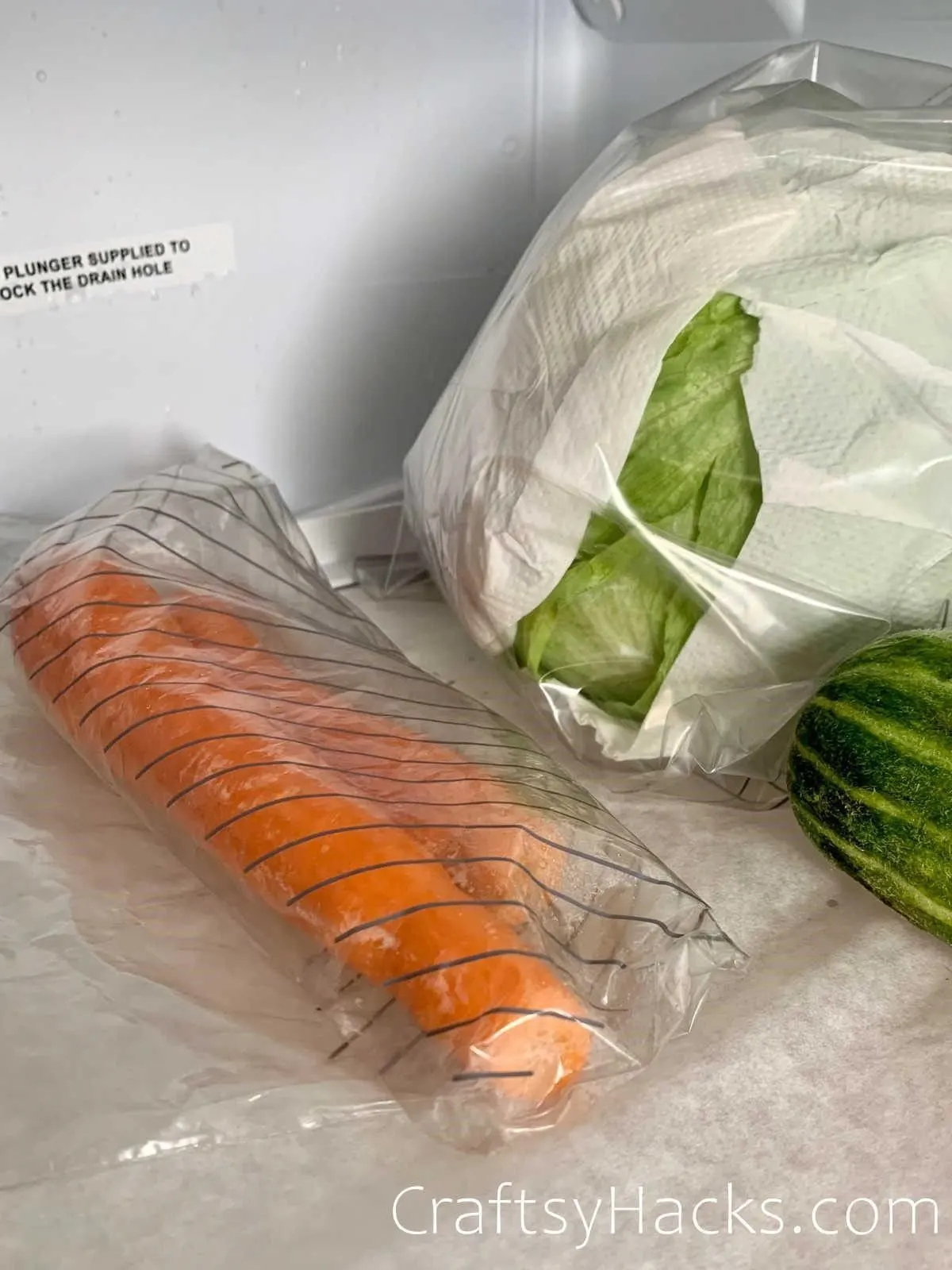
Carrots, as we all know, come in all different shapes, sizes, and colours at the market, but they all like to get stored in this fashion.
Clean them all and add them to a clean, dry bag–the residual water from the carrots will help their environment.
I love this pack of bags because they offer a few different-sized bags, just like carrots!
15. Store Your Apples Away from Other Foods
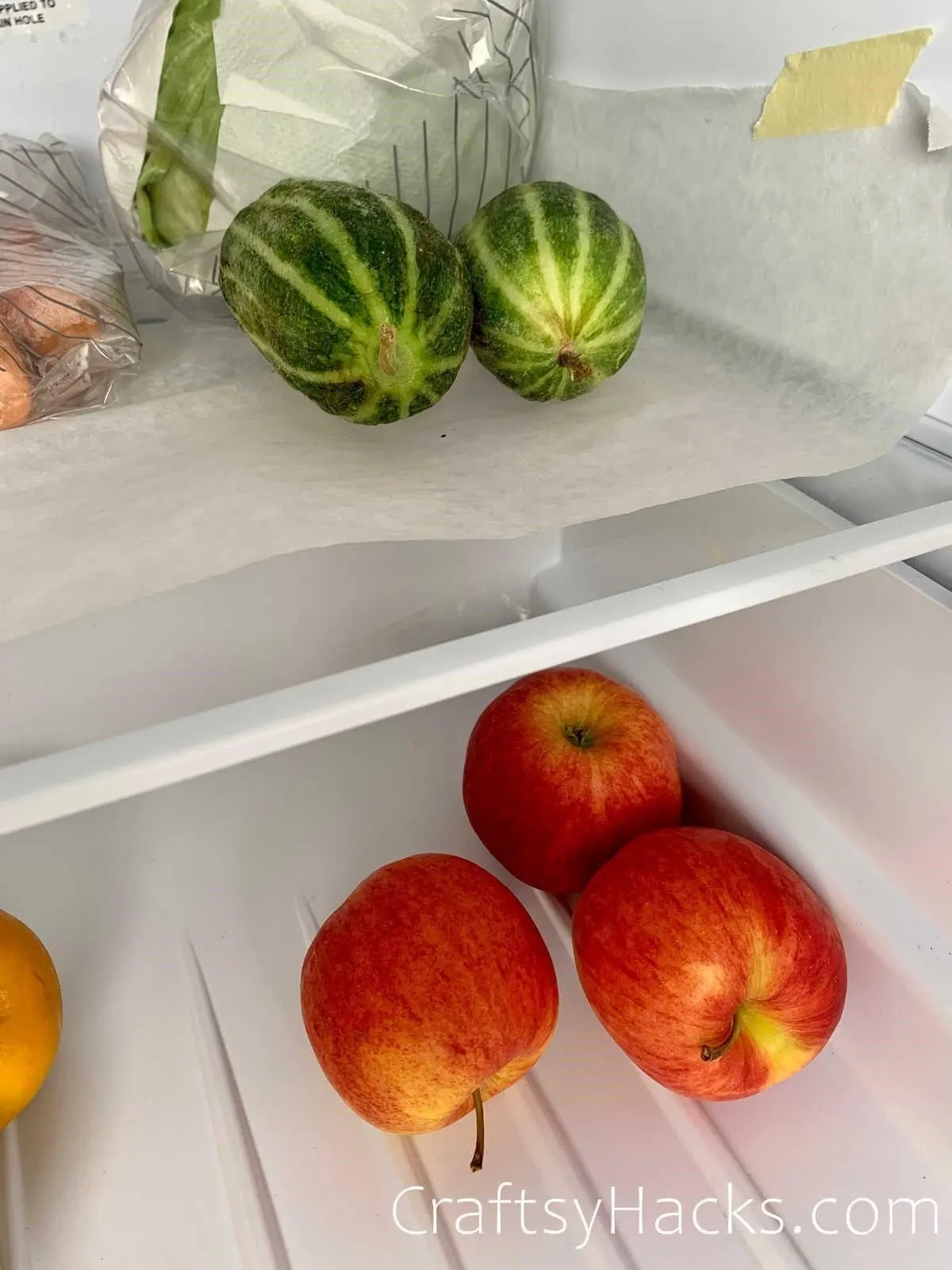
Apples are one of those notorious fruits that emit natural gases that ripen other produce in a quicker fashion.
Again, apples, like tomatoes, can be stowed outside the refrigerator, but it’s good to have them in the fridge if you have a lot or won’t use them all right away.
If you don’t have a crisper available for use, these small fridge containers do the trick just as well!
16. Store Asparagus in a Glass of Water or a Bowl
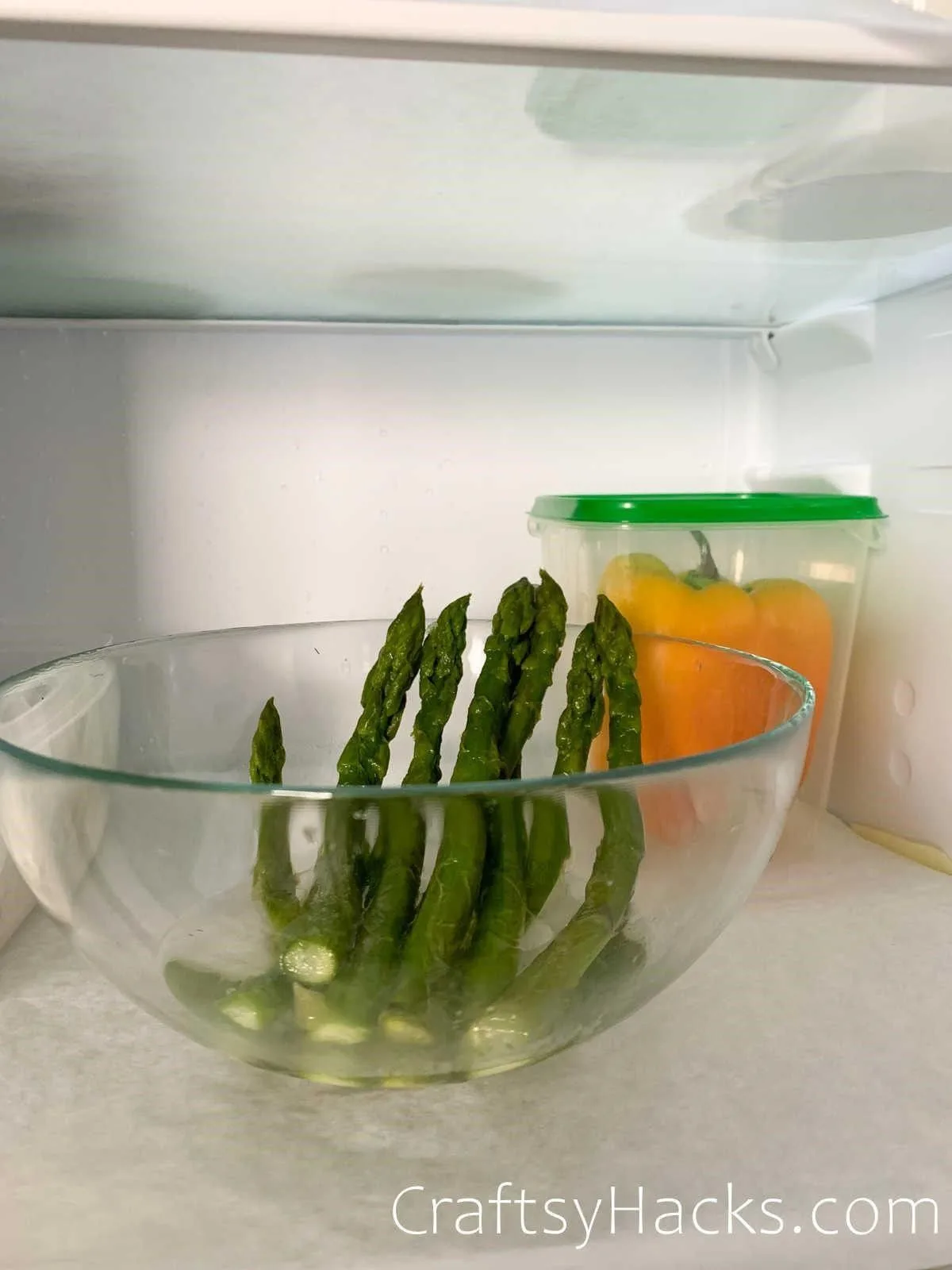
Another vegetable that can continue to accept water after hitting the shelves of a grocery store is asparagus. The tips are the only part that needs submerging after cleaning them at home.
Also, a good tip is to store anything that has water in it in a slower-to-conduct temperature material like glass or plastic.
17. Store Garlic in Cardboard Boxes
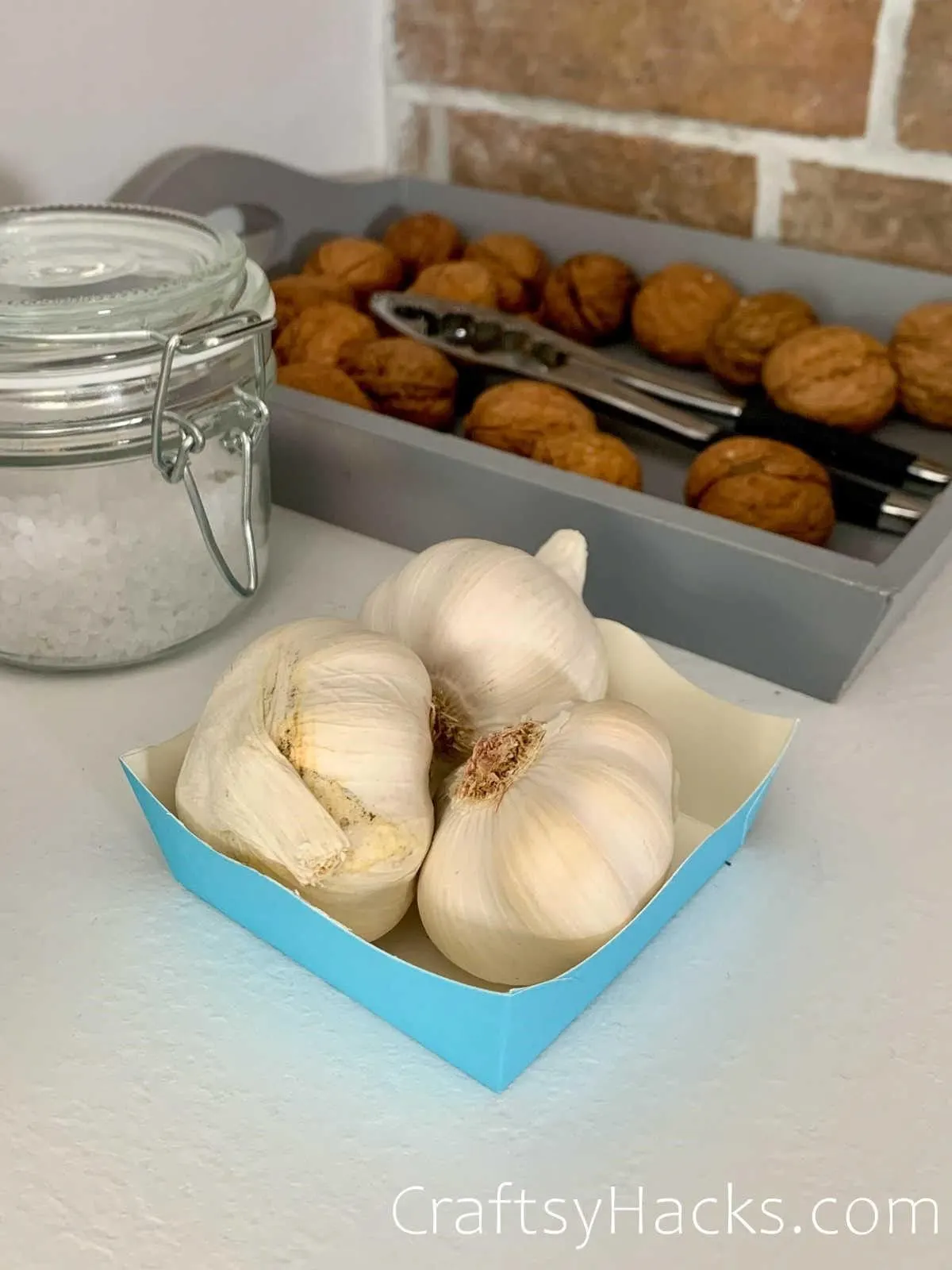
Specific, I know, but garlic needs proper air circulation for its shelf life. Plastic bags promote moisture which will entice the garlic to sprout faster.
I like to pick these little cartons now and again for garlic and baked goods.
Make room for them in your pantry by using these clever pantry organization ideas.
18. Keep Your Avocados in Fridge
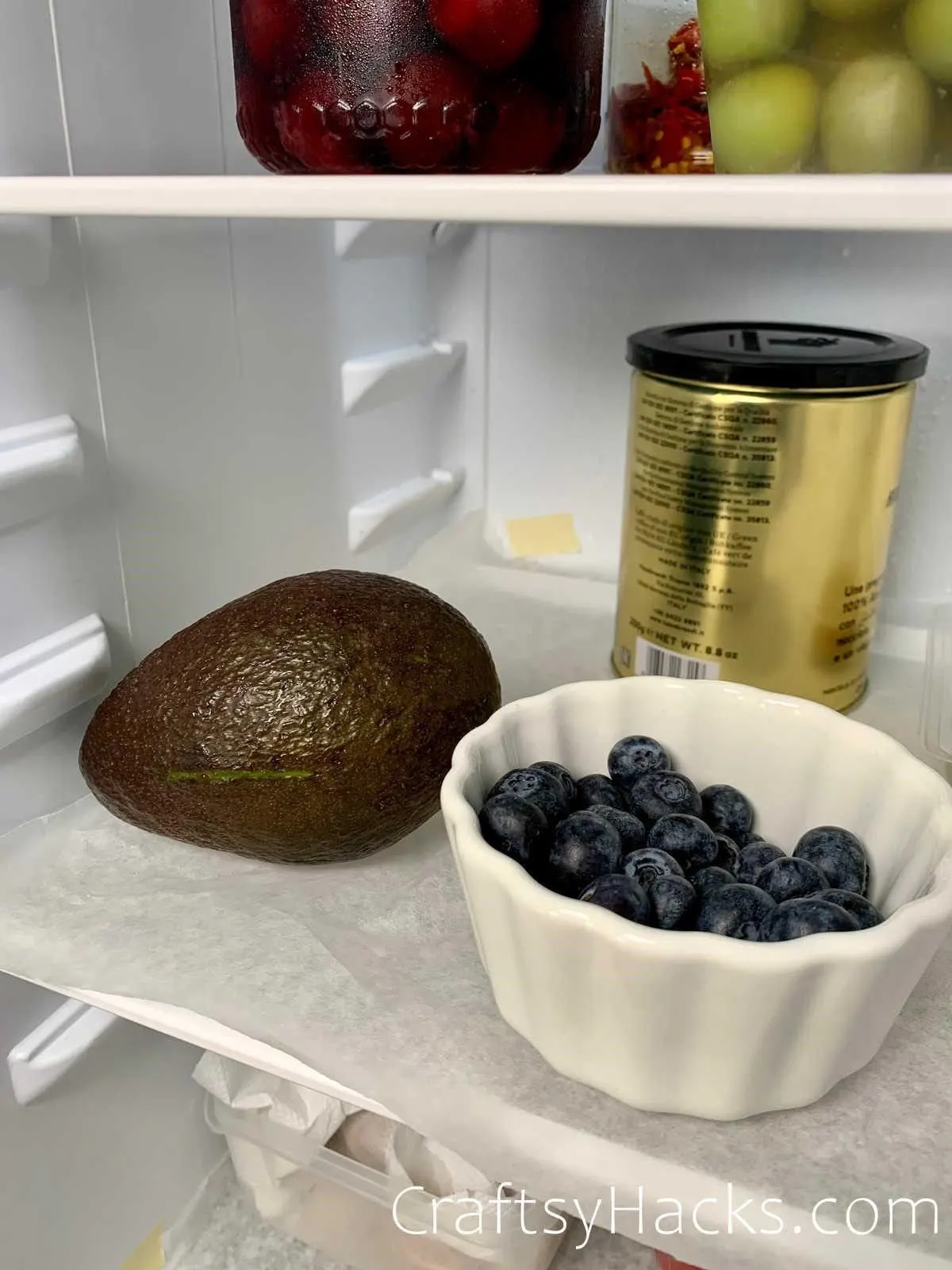
Cool air really helps the preservation process, hence why so much gets stored in the fridge. So why not do the same for traditionally non-fridge items to join the party?
Avocados ripen much slower in the fridge, and the cold air helps elongate the shelf life an extra two to three days.
That way, if you buy a bag of ripe ones, you can put as many as you need in, so you don’t feel like you have to use them in 24 hours or less.
19. Store Dry Foods in Airtight Containers
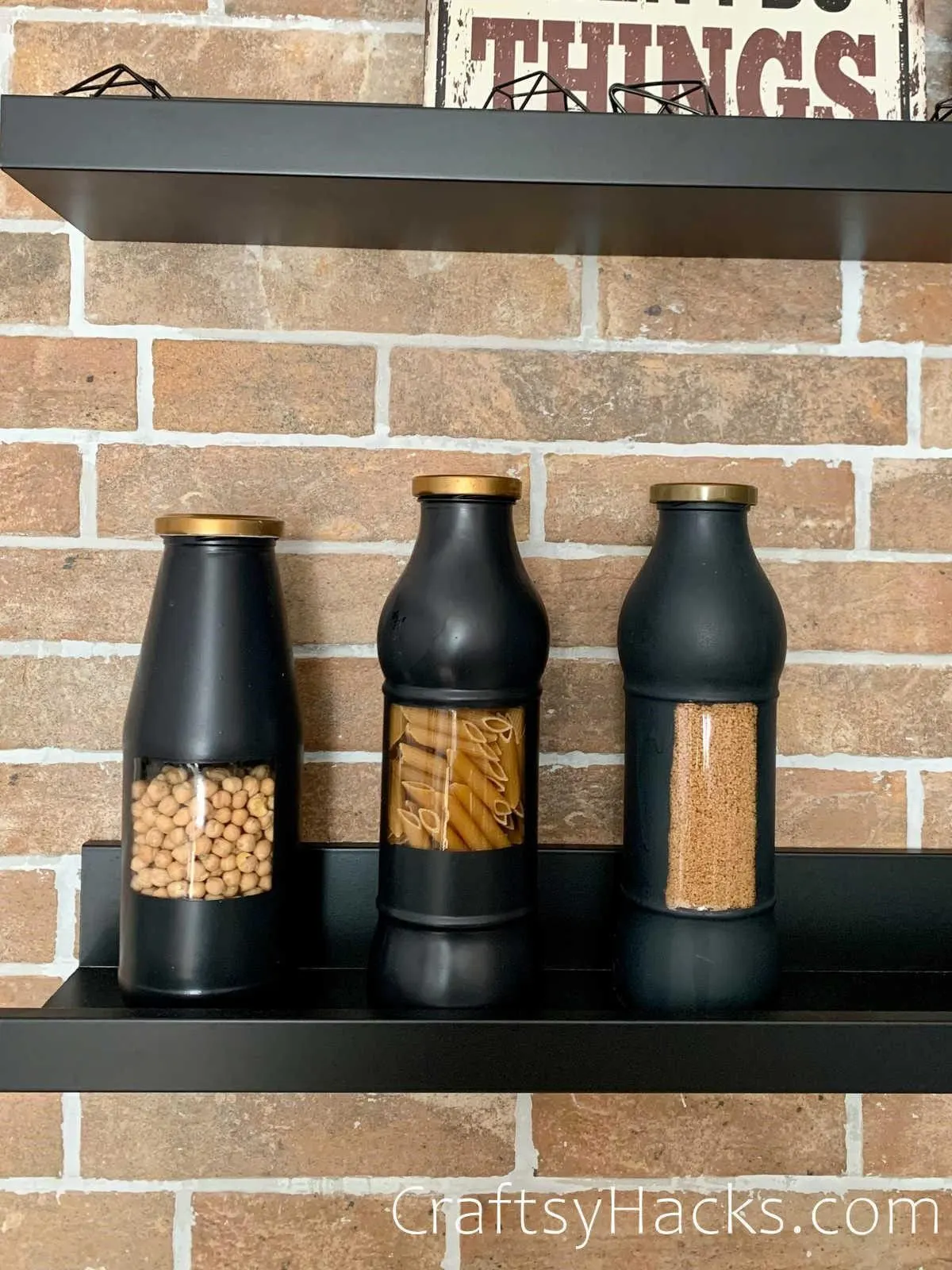
Transferring dried goods into airtight containers will help deter staleness for longer.
In boxes or containers, these goods can soften with air present, and the jars or air-tight lids lock so nothing extra can impede the product.
A little bonus, I will mark the date on the bottom of the jar or attach any specific cooking directions directly onto the corresponding container.
Looking for more genius ways to organize in your kitchen? Make this cool DIY cabinet organizer!
20. Don’t Store Fruits and Vegetables Together
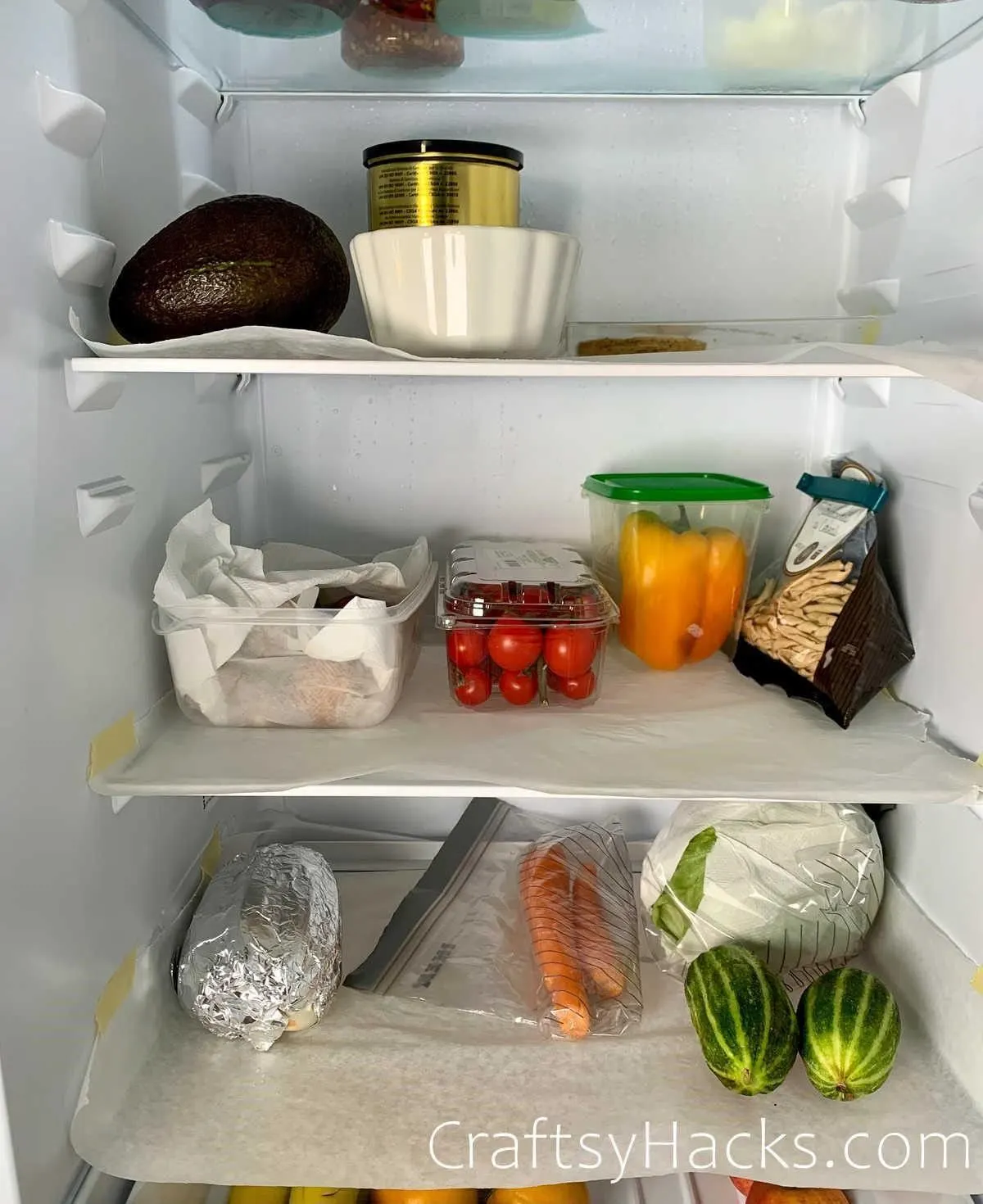
A reason why everything in your fridge may be going quicker than expected is due to the placement of your produce.
I didn’t learn this until recently, and why markets get set up the way they are, placement is an essential key to help preserve your food.
Most fruits produce something called ethylene gas, which is essentially a ripening hormone in the genetic makeup.
Vegetables are very susceptible to it, drastically shortening any piece of produce’s life span that does not already emit the gas.
These ingenious Dollar Store organizing hacks will help you better utilize the space in your kitchen!
